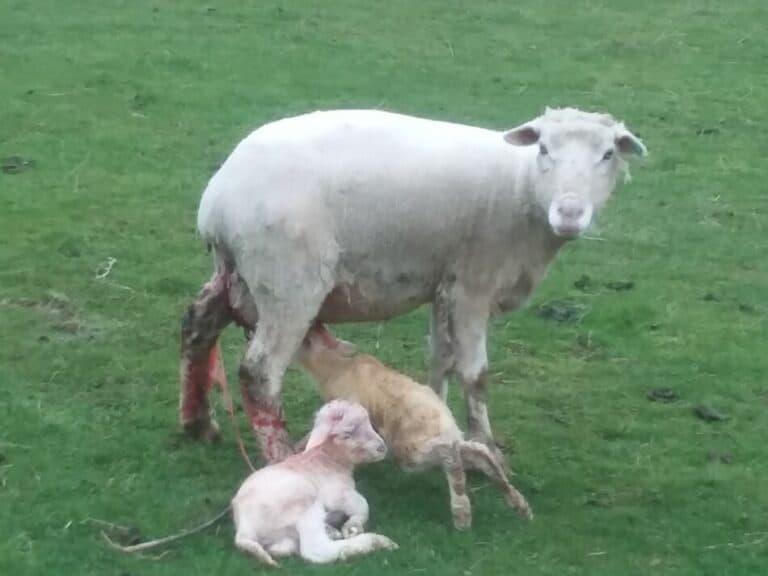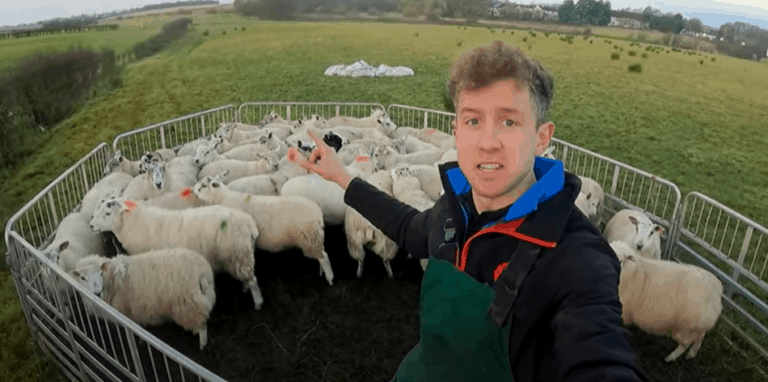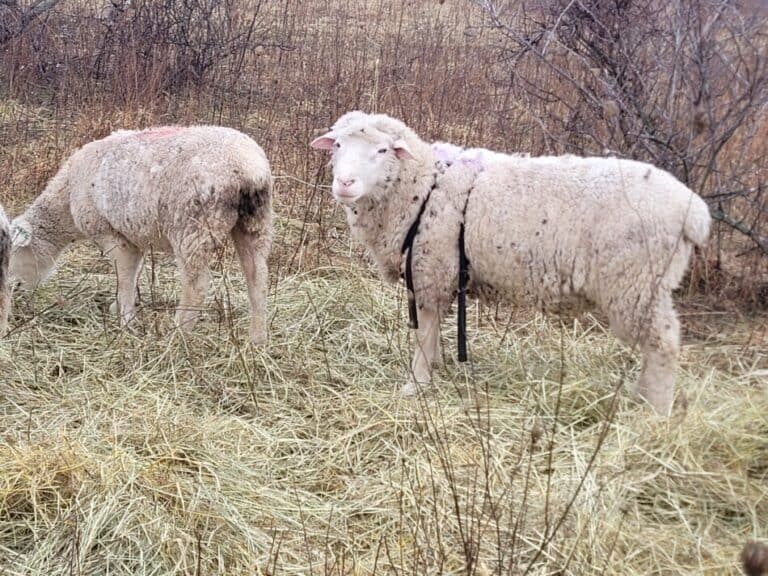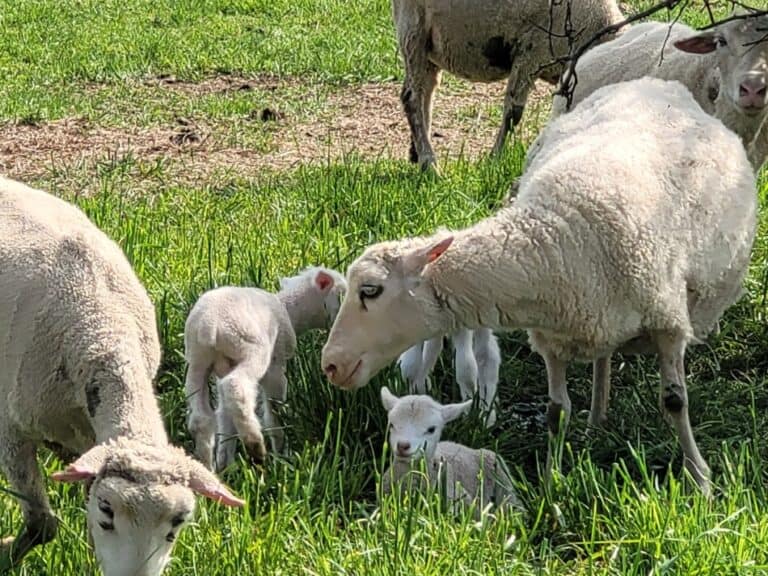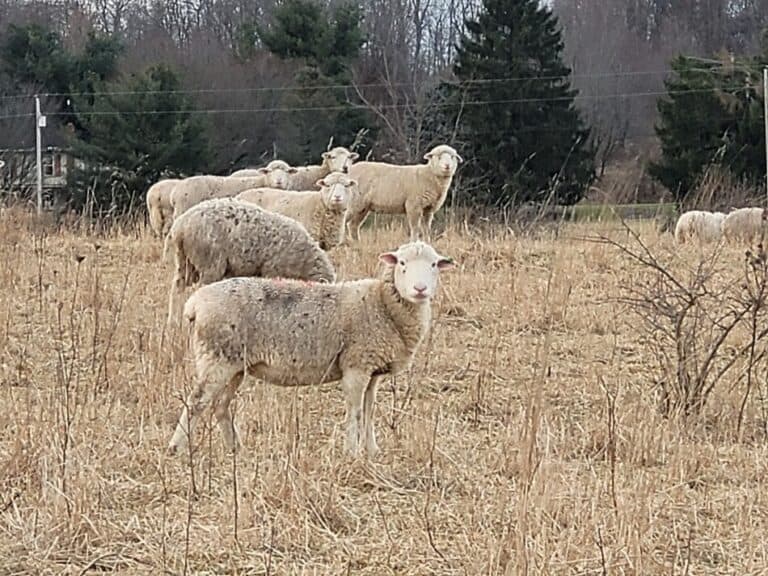How Do You Know If A Sheep Is Sick?
When raising sheep, you occasionally get a sick one. We all know that the sooner you notice a health problem in your stock, the sooner you can start treatment and get her back into top shape.
All of which starts with noticing the health problem in the first place, so how do you know if a sheep is sick?
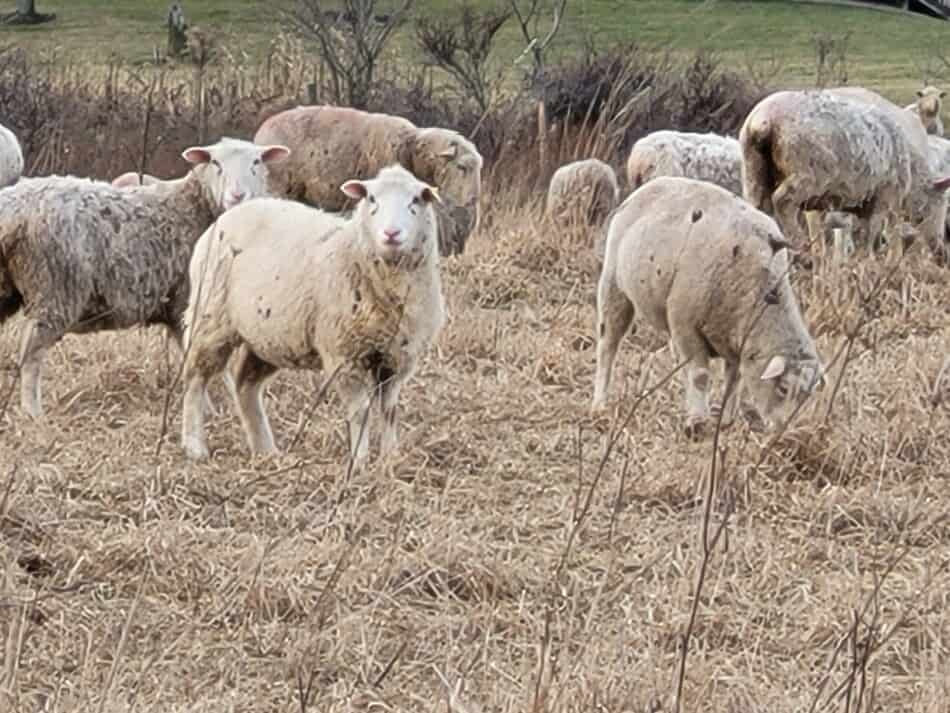
Look closely to find problems early in sheep
Sheep are great at hiding problems, looking like everyone else is one of the things that keeps them safe from predators so they are hardwired to try to fool you into thinking they are fine.
This means that you have to look closely and have experience observing the flock when they are behaving normally in order to see the small things that show you a sheep is off and needs looked at before she gets worse.
Is Keeping Sheep Easy? is an interview with a shepherd going over the lesser known aspects of keeping sheep.
A sick sheep acts differently than normal
The first thing that sick sheep do is to act differently than they normally act.
This could be seen when the sheep are:
- not coming to feed as quickly
- laying off in the corner rather than getting up when the rest of the sheep get up
- holding head oddly
- one ear droops
- walking all hunched up
- moving with a stilted gait
These are just a few examples of something that may catch your eye as a bit off, but are not things that would make most new sheep farmers say “that needs investigated”.
This is the biggest mistake folks make with sheep, any problems that you see, even the “something’s not right, but I can’t say exactly what” things, need looked into.
In these cases, chances are you do have a problem to deal with, but that’s secondary to your first problem of not even realizing that anything was going on to begin with.
This is the type of thing that is very frustrating to all shepherds, but especially anyone new to sheep. Health problems in sheep are subtle at first when they are most responsive to treatment.
This means that if you catch problems early, you have a much better chance of the sheep recovering.
If you wait until the problem is obvious, then you have a much more stressed out sheep that is more difficult to treat because the problem is more advanced when you finally noticed it.
A sick sheep probably does not eat
Sheep love to eat and healthy sheep are interested in any new food that shows up. Any time an animal does not eat when it normally would, sheep included, you have reason to be suspicious.
If the sheep are full or like what they already have, they may not eat the new food, but they will still be interested in it to see if they need to switch.
A ewe that does not care about the hay that you give the flock, even though the rest of the sheep are eating it just fine, needs to be looked at.
The sick ewe may go look at the hay but not bother to eat when the rest of the flock is digging in, or she may not even bother to get up and see what the rest of the flock is doing.
Both of these are red flags that tell you something is wrong.
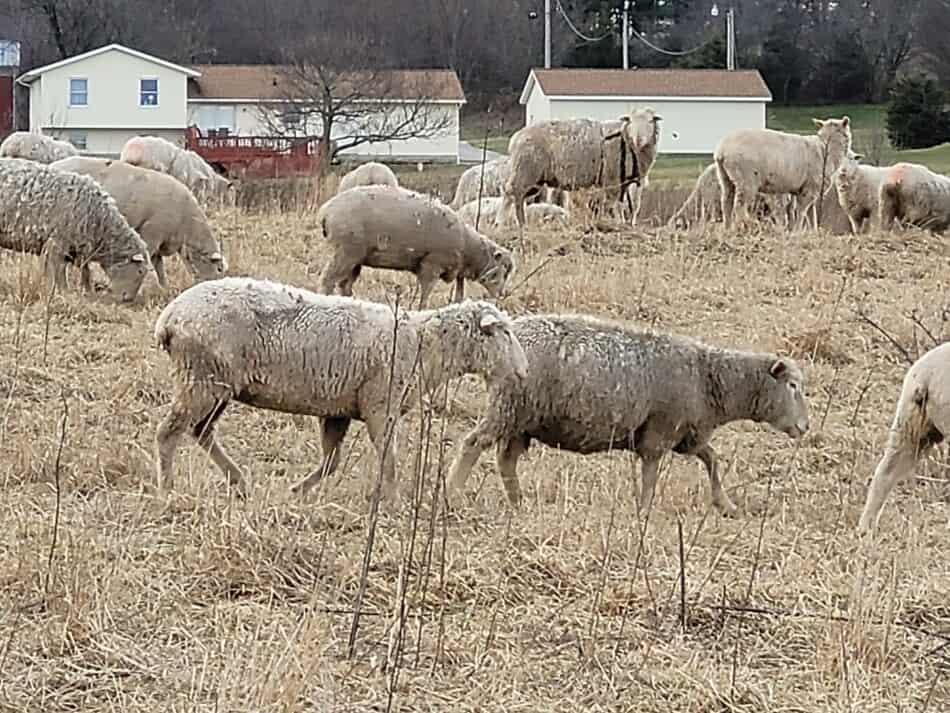
A sick sheep does not stay with flock
When the sheep are out on pasture, a sick sheep does not stay with the flock.
The problem here is that being by herself is instinctively unsafe to a sheep, so if she is off on her own, you need to figure out why.
Unfortunately, by the time the sheep is sick enough that she can not keep up with the flock, she is quite sick and you are late with noticing the problem.
Chances are good she was acting oddly for a bit earlier in the day or on the day before and you did not see the more subtle signs of illness.
Another problem that you will eventually see in your flock is ageing, usually it’s the teeth, or lack of, that end up being a problem.
A sheep that has worn down her teeth may look sick at first, but it’s more that she unable to eat enough to to keep up her weight. This is not a fixable problem, but something to be aware of incase you are trying to find the cause of “sickness” and it’s really lack of ability to feed herself.
Observe your sheep!
You need to spend time with your sheep! There is no getting around this one, especially if you are new to sheep farming.
You need to get to know their normal behavior, so that you can spot abnormal behavior early. The early part here is the key.
Knowing how your animals appear and act when healthy will assist you in determining when they are sick. Observe your animals daily so you will be able to recognize abnormal behavior.
Dr. Lionel Dawson, Professor of Veterinary Medicine at Oklahoma State University https://news.okstate.edu/articles/veterinary-medicine/2022/veterinary_viewpoints_is_my_sheep_or_goat_sick.html
The sooner you start treatment, the more likely you are to be able to bring the sheep back to health.
When you are looking at the flock, does anything catch your eye?
Here are a few examples of things that need further investigation:
- Is there one ewe that is underweight but the rest seem to be doing fine?
- One of the sheep just takes a nibble or two then goes off to lay down again.
- A sheep standing with weight oddly balanced.
- General signs of sickness like runny nose, sluggishness or odd breathing.
Another common problem is getting in a hurry and skipping over the watch the flock part of your daily sheep time.
It’s so easy to just chuck the hay in the feeders, make sure the water trough is full then head to work or where ever you need to go, after all, most of us have more in our lives than just sheep!
The problem with being in a hurry or skipping out on your daily observation is that it becomes a habit and you start to miss things that you would have caught had you been focusing on observing the flock.
The great news is that spending a bit of time each day observing the flock, just to see how they are doing, is also a habit. It’s well worth your time to prioritize and keep the observation habit in your daily chores.
Veterinary Viewpoints: Is my sheep or goat sick? is a checklist of things to look for in your flock, written by Dr. Lionel Dawson of Oklahoma State University School of Veterinary Medicine.
Why Do Sheep Die So Easily? goes over some of the reasons why sheep get sick and may even die, spoiler alert: it’s stress!
